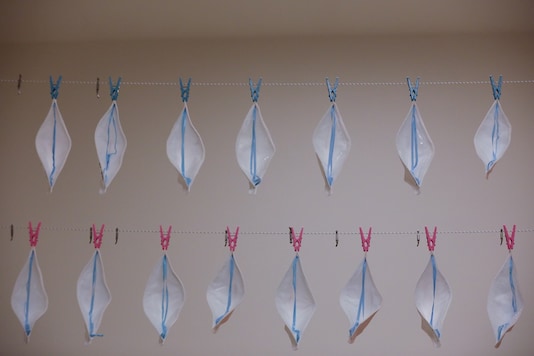
FILE PHOTO: N95 face masks hang to be sterilized with UVC light, amid the coronavirus disease (COVID-19) outbreak, at the Cleveland Clinic hospital in Abu Dhabi, United Arab Emirates, April 20, 2020. Picture taken April 20, 2020. REUTERS/Christopher Pike
According to the study, published in the journal ACS Nano, facing a shortage of the masks early this year, researchers considered a number of ways to disinfect them for reuse, including ultraviolet light, hydrogen peroxide vapours, autoclaves and chemical disinfectants.
- IANS
- Last Updated: September 26, 2020, 6:23 PM IST
-
FOLLOW US ON:
Using a combination of moderate heat and high relative humidity, researchers were able to…













